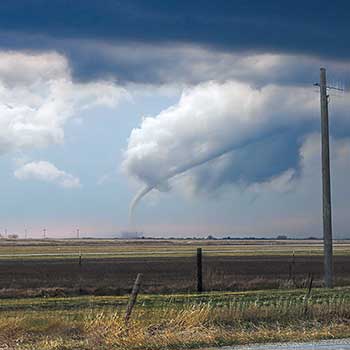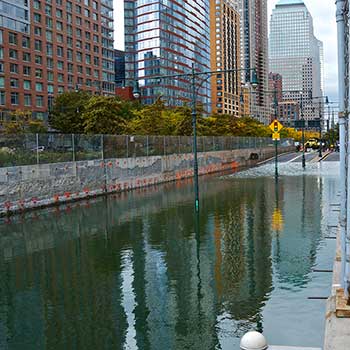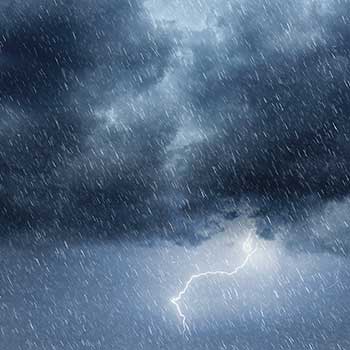How to Prepare Your AOB Claim
My name is Kimesha and I am one of the attorneys here at Insurance Litigation Group. I wanted to touch base with you all about the AOB. It has been a little over a year since the new bill went into effect and I wanted to do something like a temperature check of what your experience has been so far and to give you a few reminders based on some letters I have seen from the insurance company.
1. The AOB needs to be signed by the insured AND the AOB company.
2. You must submit the fully executed AOB to the insurance company within 3 business days
3. Do not included any fees for rescission, administrative, check processing, or mortgage processing
4. You must send the Notice of Intent to litigate at least 10 days before filing a lawsuit
a. You must also make sure the insured receives a copy of the notice
b. (make sure you get their email when you meet with them)
5. You cannot pursue litigation until a coverage determination is made on the insured’s claim
This is not an exhaustive list of all that is required with the AOB – but I wanted to point out what I have seen and highlight areas I have seen the insurance company address.
If you would like us to review your AOB to make sure it is compliant, feel free to contact us
What Should I Do if I Think I Have an Insurance Claim?
If you have observed any property damage or signs of property damage then it’s very important that you act quickly. Because waiting can be detrimental to your claim. There’s certain conditions under your policy and if they’re not met and the insurance company could use this as a reason to deny or underpay your claim.
Why is it Important for a Skilled Attorney to Review Your Policy?
Why is it important to have an experienced attorney review your policy before filing a property insurance claim? It’s extremely important because every policy is written differently, different language as to the limitations on coverage of certain water damage. There are amendments and endorsements to the policy that change the language. It’s very difficult going through a policy to make sure you are reading the language and taking into account all the additional amendments and endorsements to understand what kind of coverage you have. One part of the policy might say you have coverage, and then you look at another form, Special Provisions – Florida, for example. I see a lot of different policies that totally strike out the language and replace it, and if you don’t look at the contract in its entirety, you won’t understand what coverage you have. So, for someone to look at a Dec page, which is the part of the policy that tells you what your policy limits are and what you have coverage for, and tell you you’re covered, there’s no way for them to know unless they read the language in the policy. Every homeowner’s policy is different, so it’s critical for someone to review your policy who knows what to look for, so you can understand what you do and do not have coverage for.
What Can I Do if My Homeowners Insurance is Too Low?
What can I do if my homeowner insurance company’s offer is too low to repair the damages to my home? Well, what you can do is hire an attorney who can review your claim.
Who can look at how much it will cost to repair your home? Look at what your insurance company decided to pay for and the value they put on it, and we can file suit against your homeowner’s insurance company to make sure that you get paid to put your property into the condition it was prior to the damage, which is what the homeowner insurance company policy is for. The insurance company takes the risk that if there’s an accidental loss, they will have to put you back into your pre-loss condition. The attorneys at Insurance Litigation Group are very vigilant in making sure that happens and that our homeowners are made whole again after sudden or accidental loss to their property.
Should I Sign a Release?
Should I sign a release from my homeowner’s insurance company if there are outstanding items or supplemental claims to be filed? The answer is NO, the homeowner’s insurance company should be making what they consider undisputed payments. An undisputed payment means they agree and you agree that there is covered damage and here’s the value the homeowner insurance company attributed to it. That’s what they consider undisputed. A disputed payment would be if you hire an attorney and now they are disputing the value of what they think it’s worth vs. what you think it’s worth. Once you sign your release, you waive any and all future payments from the insurance company, regardless of what would have been covered, because you are signing a release. So you should never sign a release on a homeowners’ insurance claim, unless you have an attorney review it. The attorneys at Insurance Litigation Group are very familiar at looking at Homeowners insurance policies and payments and releases. We’ll be able to review it with you and let you know that this is something you should do or it is adverse to your best interest and if you should litigate the issue.
When You’re Looking At Your Coverage with your Insurance Agent, What Should You Be Paying Attention To?
When you’re looking at your coverage with your insurance agent, what should you be paying attention to? Well, there’s a difference between the actual cash value & replacement cost value. You’ll hear it called ACV or RCV. Actual Cash Value or ACV means you will get paid the value of the property, minus the depreciation. So it’s something is nineteen years old it only has a twenty-year useful life-span, the insurance company only has to pay you for the year of life left on it and they withhold the depreciation. If you have a Replacement Cost Value policy or RCV, the insurance company initially only has to pay you the actual cash value, but if you spend up to the Replacement Cost Value, you can file a supplemental claim to help recover the depreciation. So the insurance company holds the depreciation, but they are willing to pay it out and up to the Replacement Cost Value to repair your property. It’s very important when you are looking at your coverages with your insurance agent that you are not only looking at the Dec page, but you also look at the Checklist of Coverage, which tells you if actual cash value or replacement cost value applies to your policy limits. Replacement Cost Value will be an additional premium, but it’s much better coverage, and it’s supposed to put you back in your pre-loss condition.
Why is it Not the Best Idea to Take the Policy With the Lowest Policy Premiums
Why is it not the best idea to always take the policy with the lowest policy premiums? Well, it makes a huge difference as to what kind of coverage you have. You want to make sure that you have enough money in there. I just had a client who had coverage D, additional living expenses, and the limit was $1,000; all the insurance company had to pay him for the additional expenses that he incurred for not being in the property while the repairs were being made or when the property was destroyed was $1,000. That’s all he had. That’s all the insurance company had to pay him, because he chose to accept a policy at a lower rate and didn’t consider the fact that he needed it the insurance company only had to pay him $1,000 for his additional living expenses. Which is quite a travesty because, especially when there is a hurricane loss and there is the total destruction of your house or major damage you have to spend extra money to be out of the house. It’s in disrepair and the insurance company should be paying you those additional expenses that affect your lively hood and your life and allow you to survive while your house is being repaired. If you don’t have the proper coverage, they won’t owe it to you.
Water Damage Claim
I had a water damage claim and suspect that there is mold in my house now, what do I do? Well, mold is a tricky subject. You might not see it, but you might smell something like a wet dog, or you might see spots and not smell anything but might have allergies. What you would need to do is get a mold testing company to come in and do mold assessment tests. So either they will take an air sample, with a little gadget that sucks in the air to test the particles of mold spores, or they will take a swab, kind of like when at the doctor’s office they take a cheek swab from you, they take a swab of the affected area and see how many particulates and microbial they find. They also take samples of the exterior and compare the natural conditions in the environment to what they find inside. IF they do find mold that does need to be remediated, then they’ll write up a mold remediation protocol. Now, the company that tests for mold cannot do the remediation. And the company that remediates the mold, that takes out the damaged property, sprays, do whatever they need to do with the mold protocols, can’t do the test to prove that the mold is resolved. One company can do the testing, initially and afterward that there was mold and now it’s gone, but a different company has to repair the mold damage.
Why is it important for an experienced attorney review your homeowner’s insurance policy before you file a claim?
Why is it important for an experienced attorney review your homeowner’s insurance policy before you file a claim? It’s extremely important because homeowner’s insurance policies are quite complicated. Attorneys who are not experienced in property insurance law may not even be experienced enough to review your policy. You have to look at multiple forms and endorsements that amend policy provisions to understand your homeowner policy. They’ll say X is covered, and then in the next endorsement, it’ll say X is excluded from this policy. For premium credit, you’ll pay less not to have the insurance company cover something that would otherwise be covered. An experienced attorney needs to help navigate your insurance policy, so you understand what is and is not covered. There are also different kinds of policies, like an All-Risk policy or a Named Peril policy. An All-Risk policy covers any damage unless it’s excluded in the policy, whereas a Named Perils policy only covers things that are listed as covered in the policy. With the different policy types, the different coverages, language, and endorsements, it’s all quite complicated. The attorneys at Insurance Litigation Group are quite experienced in reviewing homeowner’s insurance policies and will be able to go over it with you and show what kind of coverage you actually have.
So my contractor says he can save me time and money by starting the work without pulling a permit
So my contractor says he can save me time and money by starting the work without pulling a permit, is that a good idea? Well, the answer is NO. I’ve seen some homeowners insurance policies specifically exclude damage to a property if there was work done without a permit, and they will search for permits to see if prior claims were repaired properly or if prior work was done on a home properly before they give you coverage. So it is extremely important that you follow the rules. Permits are there to protect you, to make sure that your contractor is doing the work correctly and that it is up to code. It is extremely important and necessary that when you make repairs to your property that you do it by the book and that your contractor pulls the proper permits to make sure that it is done correctly.





